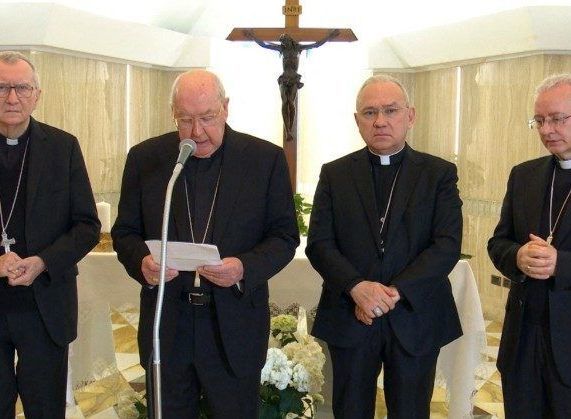[caption id="attachment_66439" align="aligncenter" width="600" caption="PHOTO BY PETER MCDERMOTT Schoolteacher Pauline O'Brien pictured at the New York Irish Center in Queens, where she is on the board. "]
Sometimes a book can change a life. One did in the case of Pauline O'Brien.
She is the assistant principal of the High School for Medical Professions in Canarsie, Brooklyn. And the book's title is "Savage Inequalities," by educationalist Jonathan Kozol, which she read as a young Irish immigrant in the early 1990s.
O'Brien, who grew up the second youngest of nine children on a farm near the Silvermines Mountain in County Tipperary, was just 19 when she arrived in the United States in 1990. She worked in a variety of service related jobs: minding children, cleaning apartments, and working in pubs and restaurants. Finally, she became a restaurant manager.
"But then I asked myself: 'What do I want to do my life?'" O'Brien said.
At that time, advocates were encouraging Irish immigrants whom they assessed to be college material, and who had missed out back home for some reason, to seek out educational opportunities in the United States.
In the 1990s under Paul Finnegan's stewardship, the Emerald Isle Immigration Center in Woodside, Queens, published a booklet explaining the practicalities of applying for colleges and financial aid. (O'Brien is now on the board of the New York Irish Center in Long Island City in Queens where Finnegan is the executive director).
After O'Brien did an associate's degree in business at La Guardia Community College and then a degree in sociology and English at Baruch College, she considered her options.
"I heard about the New York City Teaching Fellows Program. And I explored that a little," she said, six years on.
She remembered that she'd enjoyed teaching when volunteering with an organization that helped HIV positive adults get their GED. But the deciding factor was "Savage Inequalities." She'd been surprised to learn that education was paid for by property taxes, which was something that reinforced segregation and class bias in the system.
"It had come as a huge shock," she recalled. O'Brien remembered that back in the classroom in County Tipperary the doctor's son could sit beside the laborer's daughter. The system allowed for some sort of equality of opportunity. The American way, it seemed, prevented it.
So, more than a decade after stumbling upon Kozol's book, she dedicated herself to working for New York's underserved communities.
"In looking at social change and looking at the impact that poverty and that the lack of education had on kids in this country, said O'Brien, in a reference to her studies at Baruch, "it was kind of an easy decision to make in one sense. I didn't know what I was letting myself in for, but it was a good decision."
If being an outsider has given her a perspective on American education, it has helped her, too, as a teacher in the High School for Medical Professions, which was established three years ago in a working-class, minority neighborhood. At the end of the last academic year, the 9th, 10th and 11th grades had a combined student population of 349, of which 81 were foreign born, some coming from as far as away as Nepal and Japan. Another large group of students was born to immigrant families.
O'Brien believes that she can help ease students from the more teacher-centered approach of some foreign countries to the looser, project-orientated one favored in America.
She was educated herself by what she calls the "English system," and can understand the expectations of many of the students and parents born in the Caribbean, because of their countries' shared history as parts of the British Empire,
"The expectation is that kids learn to read and that they learn to write and a lot of it still encompasses rote memorization, which isn't necessarily the way to go in education, but at times it does have a place in education," she said.
"It's very structured," she added. "The expectations are that the kids will learn how to spell and I think discipline is also a huge part of that: the expectation is that you are in school to learn so that you can have a better life."
The assistant principal, who works very long days, 12 months of the year, tries to ensure that each of her school's students gets a shot at a better life.
But having understood it theoretically a long time ago, O'Brien nowadays must deal with the realities of the challenges that inequality presents in education.
"You've got to believe that you can make a difference," she said, "even if it's in the life of just one student."
This story was done in conjunction with Feet In Two Worlds. To hear extracts from the interview and also a discussion about the long tradition of Irish women working in New York's schools, search "Pauline O'Brien" at http://news.feetintwoworlds.org.









